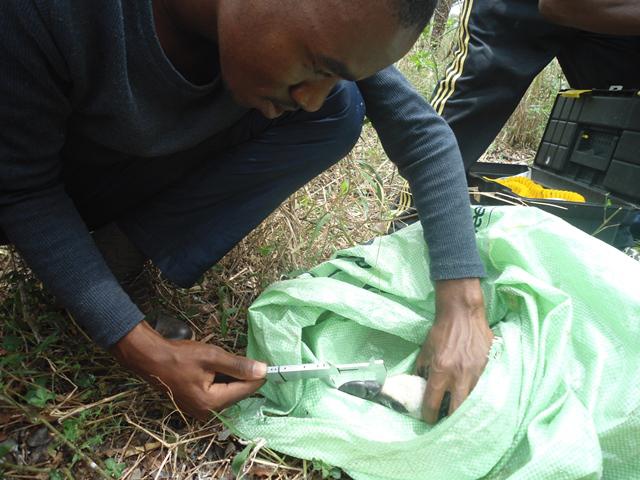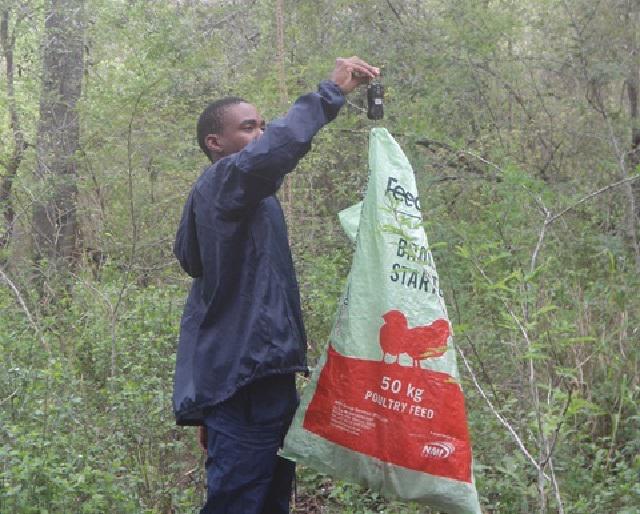Machawe Maphalala
Aims:
1) It is to determine the breeding success of African White-backed Vultures,
2) to determine the growth rate of the chicks and
3) to monitor food provision in the nests using camera traps.

Taking measurements of the bill.
The African White-backed Vulture (Gyps africanus) is the most abundant species of three species (Lappet-faced, White-headed and African White-backed Vultures) that have been reported to nest within Swaziland with an estimate of 300 pairs. Like in other parts of Africa the African White-backed Vultures in Swaziland are also facing threats such as poaching for traditional medicine, decrease in food availability and loss of suitable habitat mostly due to transformation of land for commercial agriculture. Due to the severity of the threats, African White-backed Vultures are in Swaziland limited to breeding within protected areas. The global conservation status of the species has been upgraded from Near Threatened to Endangered due to catastrophic declines in its populations across African savannas.

Weighing of a Vulture chick.
This study aims to ascertain the factors affecting the breeding success of a small colony of Endangered African White-backed Vultures in Swaziland. Camera traps will be used to monitor food provision to the chicks in the nests. Growth rates of chicks will be measured throughout the breeding season. Food provision rate will be correlated with growth rates and breeding success to determine whether nest failure is linked to food supply or to some other cause. This work will test the importance of food provision rates on the breeding success of an Endangered vulture species and therefore will inform the Swaziland National Trust Commission as to the importance of declining food supply for vulture conservation. Results of the study will assist in the decision whether or not to arrange for supplementary feeding for vultures during the breeding season.